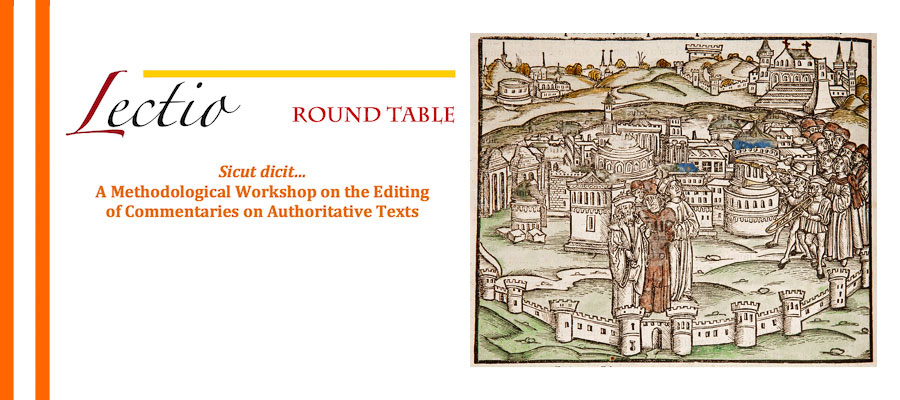Sicut dicit...A Methodological Workshop on the Editing of Commentaries on Authoritative Texts, The Leuven Institute for Ireland in Europe, March 9–11, 2016
An ancient or medieval text that comments on another one is inevitably shaped by it: the commentary cites the commented work, copies its structure, etc. Modern scholarship on the text that was the object of exegesis will thus often find it useful to take into account the commentator’s treatise. Vice versa, the editor of the commentary cannot turn a blind eye to the text commented upon. Especially in the case of authoritative texts, this complicates research, since the commented text has usually known a complex transmission history; the same can often be said of the commentary itself, precisely because it discusses an authoritative source text. Moreover, the genre of the commentary has its own characteristics, such as the exegetical strategies it uses, the embedding of the work commented on in a larger doctrinal context (for example by references to other sources), or the relation between the material and the manner of its presentation (the search for the appropriate mise-en-page).
The Leuven workshop, which is organized by LECTIO (Leuven Centre for the Study of the Transmission of Text and Ideas in Antiquity, the Middle Ages and the Renaissance) and its Laboratory for Text Editing, wants to explore the specific methodological problems presented by the editing of commentaries on authoritative texts and to discuss the possible answers to them. Its approach will be diachronic and multidisciplinary: the workshop will tackle texts from Antiquity and the Middle Ages, written in both Greek and Latin, from various fields: literature, theology, philosophy, medicine and law. We hope this approach will allow us to define and refine the challenges this kind of research faces and the opportunities it offers.
Participation is free, but registration is required via lectio@kuleuven.be before 25 February 2016.
